Statement about Biomarkers
The International Liver Transplant Society (ILTS) strongly supports the ongoing and
new efforts aimed at the exploration and validation of biomarkers in the field of liver
transplantation, with a special emphasis on non-invasive biomarkers. This initiative is not
only in line with the top missions of the Society but also represents a significant step
forward in enhancing patient care and outcomes in liver transplantation.
Non-invasive biomarkers offer a transformative approach in monitoring and managing
liver transplant patients. They have the potential to:
- Reduce Reliance on Invasive Procedures: By shifting focus to non-invasive
biomarkers, there is a possibility of significantly reducing the frequency of liver
biopsies. This approach minimizes patient discomfort and the risk of complications
associated with invasive procedures. - Improve Patient Monitoring: Non-invasive biomarkers provide a more patient-
friendly way to continuously monitor graft health and function. This is crucial for
early detection of rejection, infection, or other post-transplant complications,
facilitating timely interventions. - Enable Personalized Treatment: These biomarkers can help in tailoring
immunosuppressive therapy and other treatments to the individual needs of
patients, thereby optimizing outcomes and minimizing side effects. - Foster Research and Innovation: The ILTS’s support for research in non-
invasive biomarkers is a catalyst for innovation. It encourages the development of
new technologies and methodologies that could revolutionize post-transplant
monitoring and care. - Enhance Understanding of Transplant Physiology: Studying non-invasive
biomarkers contributes to a deeper understanding of the immunological and
physiological processes involved in liver transplantation. This knowledge is vital
for developing new therapeutic strategies. - Cost-Effective Care: By improving monitoring methods and reducing
complications, non-invasive biomarkers can lead to more cost-effective care over
the long term - Global Impact: The advancement in non-invasive biomarkers can have a global
impact, benefiting a wide range of patients across different healthcare systems.
In summary, the International Liver Transplant Society’s commitment to advancing
research and validation of non-invasive biomarkers reflects its dedication to
improving the field of liver transplantation. This endeavor aligns with the Society’s
mission to enhance patient care, promote scientific understanding, and foster
collaboration in the transplant community. The potential benefits of these biomarkers are
vast and represent a significant stride towards more effective, personalized, and patient-
centric transplant medicine.





